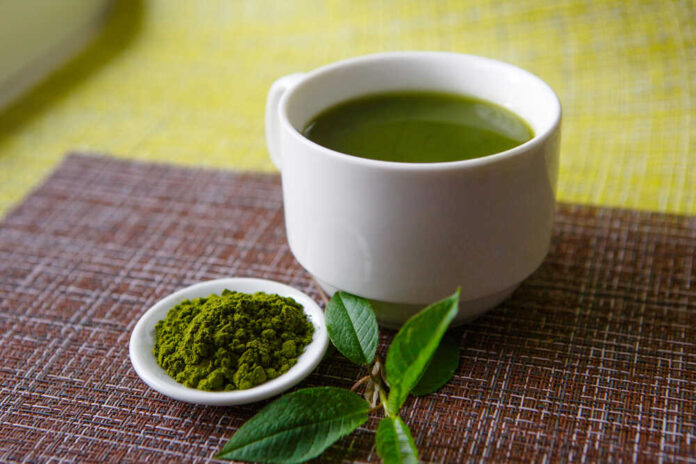
Matcha tea is derived from the leaves of the Camellia sinensis plant, which is also the source of other types of green tea.
However, matcha is unique in its preparation: the tea leaves are ground into a fine powder, which is then whisked into hot water. This process results in a vibrant green, frothy beverage that has gained popularity for its rich taste and potential health benefits.
Rich in antioxidants, amino acids, and other nutrients, matcha tea has long been associated with a variety of health benefits, from improved mental clarity to increased metabolism.
Researchers have also begun to investigate the possible link between matcha tea and its potential antidepressant-like effects, leading to some intriguing discoveries.
Studying Matcha as an Antidepressant
A recent study published in the journal Nutrients examined the antidepressant-like effects of matcha tea powder in mice subjected to social isolation stress. The study focused on the activation of the dopaminergic system, a network of brain regions responsible for producing and releasing dopamine, a neurotransmitter associated with reward, pleasure, and mood regulation.
The researchers observed that oral administration of matcha tea powder reduced depressive-like behaviors (immobility, for example) in stress-susceptible mice.
However, the antidepressant-like effects of matcha tea powder were not observed in more stress-tolerant strains of mice, suggesting that an individual’s mental state and tolerance to stress might play a crucial role in determining the potential benefits of matcha tea.
Dopamine and Depression
Dopamine is a key neurotransmitter that plays a significant role in regulating mood and emotions. An imbalance in dopamine levels has been linked to various health conditions, including depression, schizophrenia, ADHD, and Parkinson’s disease.
The effects observed in this new study were linked to the activation of the dopaminergic system, specifically the prefrontal cortex (PFC), nucleus accumbens (NAc), and ventral tegmental area (VTA) regions.
The PFC is involved in executive functions such as decision-making, while the NAc is associated with reward and reinforcement, and the VTA is a primary source of dopamine in the brain. By activating this circuit, Matcha tea powder may help promote a positive mood and alleviate depressive symptoms in susceptible individuals.
Other Health Benefits of Matcha Tea
In addition to its potential antidepressant-like effects, matcha tea is known for its numerous other health benefits. Rich in antioxidants called catechins, matcha tea may help reduce cellular damage and inflammation, support heart health, and boost metabolism.
The presence of the amino acid L-theanine in matcha tea has also been linked to improved mental clarity, focus, and relaxation.
Considering Matcha Tea for Depression: A Holistic Approach
While the research on Matcha tea and its potential antidepressant effects is still in its early stages, the findings thus far are promising. However, it is essential to remember that depression is a multifaceted condition, and no single treatment or natural remedy will work for everyone.
If you are considering incorporating Matcha tea into your daily routine to help manage depression, it is important to discuss this option with a healthcare professional. They can provide guidance on how to safely integrate Matcha tea alongside other treatments, such as medications or therapy, to create a comprehensive and personalized approach to managing your depression.






















